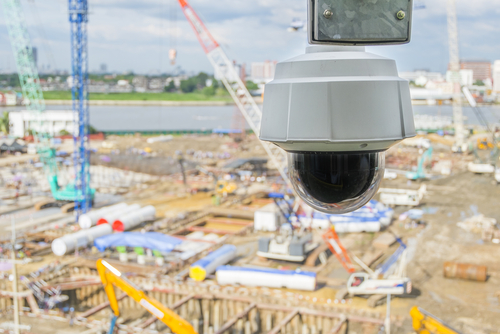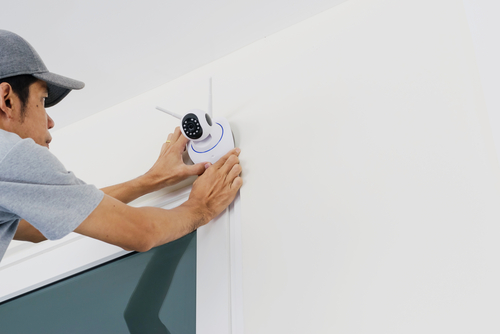
What Are The Features of CCTV?
April 21, 2021
Benefits Of Installing CCTV Camera Outside Your BTO
July 1, 2021What Is The Difference Between an IP Camera and CCTV?

What Is The Difference Between an IP Camera and CCTV? In today’s world, it has become a common practice to use security cameras. These cameras are built to capture clear footage of crime or fire. Different types of cameras are available and they utilize different technology.
The most common types are IP cameras and CCTV. Which one is better? We are about to share the differences between IP camera and CCTV. Let us get started.
Table of Contents
What Is An IP Camera?

Today, people always want better image quality from security cameras. So, people are settling for IP cameras. It is predicted that by the year 2025, there will be more than 100 million IP cameras in use.
These cameras are connected to the internet round the clock. The cost for these cameras has come down substantially making them affordable to most companies. The process of installing these cameras is also easy as they are wireless.
Since they do not need other equipment, they are very simple to operate.
How Do CCTV Cameras Work?

These cameras are analog and are connected with the internet, but that does not imply that they do not use digital technology. The camera is connected with a DVR that is when digital technology enters the picture.
So, if you analyze there is not much of a difference between CCTV and IP cameras.
If you look at the setup then you will be pleased to know that it is very simple since it only involves a single peripheral. The footage captures by the camera is then stored in the DVR, which becomes digital recording.
The Cost Factor

You have to keep in mind that CCTV cameras tend to cost extra because of the DVR that comes with them. Also, CCTV cameras cost extra because the price of IP cameras has gone down a lot. The price also depends if you want to buy these cameras or you want to rent them for a limited time.
The one benefit you can enjoy from CCTV cameras is that you can rewind footage without using the internet. In this case, paying a bit more for a CCTV camera may not be such a bad thing.
What About Motion Blur And Frame Rate

This is a big determining factor when it comes to choosing between these two cameras. The frame rates on HD analog have certainly improved a lot over the years, but an IP camera can take things up to 4K.
In a place where the cameras have to capture a lot of movement, you may need a camera with high resolution to prevent motion blur. Also sometimes you need to playback a part of the footage where you feel something suspicious is taking place.
Footages prove very useful in courtrooms, so in this case, an IP camera would have an edge as it gives a wide-angle view of things.
What About Encryption?

In this respect, the IP camera has an advantage. Since it is connected with the internet, it uses enhanced encryption technology to make sure that the camera cannot be hacked into. CCTV cameras do not have any encryption.
There is no doubt that solid encryption is very necessary to provide cybersecurity.
Some Other Things To Keep In Mind

IP cameras come with sensors that allow them to cover bigger areas. Whereas, CCTV cameras have a bit of a disadvantage when it comes to covering bigger areas as they do not have these sensors.
So, you may have to install many CCTV cameras, which could result in extra expenditure. IP cameras can provide analytics and intelligence these are very useful in case a report needs to be created.
Advantages of CCTV Cameras

Here are some of the advantages of CCTV cameras.
- They are very helpful in detecting crimes and by installing them you can make the environment safe for other people.
- These cameras can be used to monitor all sorts of activities and make a record of them all.
- The footage collected by these cameras can be used as evidence at any point in time.
Advantages Of An IP Camera

Here are some of the advantages of an IP camera.
- These cameras are capable of covering a wide-angle
- The search function on these cameras is very powerful
What Is The Difference Between an IP Camera and CCTV? – Conclusion

So, by now you have understood the differences between both cameras. They have their advantages and disadvantages, but when it comes to providing better footage of a bi area the IP camera takes the lead.



